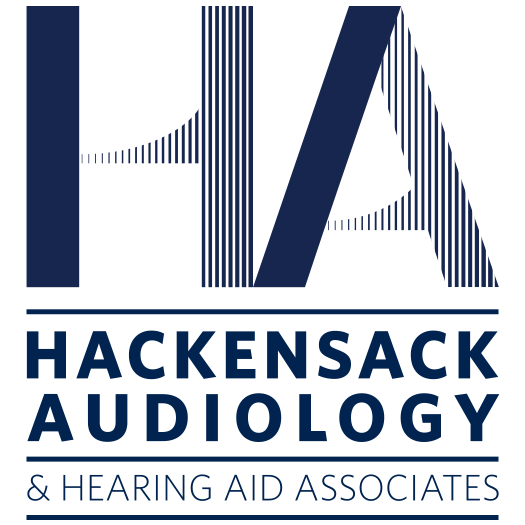Did you know that certain medications and other chemicals can damage the inner ear? It’s called “ototoxicity,” which can lead to hearing loss, tinnitus, and balance disorders.
Some 200 to over 750 types of chemicals are suspected ototoxicants, making awareness an important part of ensuring better hearing health.
Read on to learn more about ototoxicity, including symptoms, impacts, treatment, and potential steps to help reduce your risk.
What Chemicals Are Ototoxic?
There are too many potential ototoxicants to name here, but agencies such as the U.S. Occupational Safety and Health Administration (OSHA) group them into four categories:
- Pharmaceuticals, such as loop diuretics, selected analgesics, some chemotherapy medications, and certain antibiotics
- Solvents, such as toluene, ethylbenzene, and trichloroethylene
- Asphyxiants, such as carbon monoxide, hydrogen cyanide, and tobacco smoke
- Nitriles, such as 3-butenenitrile, cis-2-pentenenitrile, and acrylonitrile
- Metals and compounds, such as mercury compounds, germanium dioxide, and lead
What Are the Symptoms and Potential Impacts?
Symptoms of ototoxicity can include bouncing vision, headaches, fatigue, nausea, and vertigo. Tinnitus — or noise in the ears or head — typically appears first, per the American Speech-Language-Hearing Association, and can ultimately progress to hearing loss.
Though ototoxic chemicals, medications, and gases alone can affect hearing and balance, researchers have found that excess noise exposure can further increase the risk of chemical-induced hearing loss among workers.
According to OSHA, the mix of chemical and noise exposure “often results in hearing loss that can be temporary or permanent, depending on the level of noise, the dose of the chemical, and the duration of the exposure.”
Can Ototoxicity Be treated?
There’s no standard treatment for ototoxicity. With hundreds of known ototoxicants, discovering the exact toxic chemical can be difficult. The effects caused by ototoxic drugs can sometimes be reversed when the drug is stopped; sometimes, however, the damage is permanent.
Treating vertigo caused by ototoxicity usually involves therapies to help restore balance until the individual is able to process the chemicals and pass them out of the body.
Hearing loss and tinnitus can involve a variety of effective treatment options, such as hearing aids, so it’s important to seek help from an audiologist, who can conduct a diagnostic evaluation and customize the right solution.
How Can I Reduce My Risk?
The bad news? There’s no official strategy to protect against ototoxicity. Avoiding the source might certainly help, but that could prove difficult considering the hundreds of known ototoxicants. Plus, some ototoxicants, such as certain chemotherapy drugs, can be lifesaving or otherwise beneficial.
The good news? Science is on the case. Drug developers, for example, are seeking ways to lessen the ototoxicity of the chemotherapy drug cisplatin, with a few potential treatments in various stages of trial or other advancement.
In one study involving chemotherapy drugs and hearing loss, researchers and audiologists suggest regular hearing checkups and monitoring, a baseline evaluation before treatment when possible, drug-dosage adjustments as medically allowable, and close collaboration between oncologists and audiologists to help patients lessen the risk or extent of hearing damage.
It’s also important to minimize exposure to excess noise — one of the most preventable causes of hearing loss — which can compound the risks of ototoxicity. Wearing quality hearing protection, limiting the amount of time exposed to sound levels at or above 85 decibels, and simply turning down the volume on MP3 players and other devices can go a long way.
Ototoxicity can affect more than your hearing and balance. It can affect your quality of life, including your desire to engage in the activities you treasure most. If you or a loved one is taking ototoxic medication or experiencing symptoms of ototoxicity, contact our hearing-care experts today. We’re here to help!
- American Speech-Language-Hearing Association. Ototoxic Medications (Medication Effects). https://www.asha.org/public/hearing/Ototoxic-Medications/. Accessed May 24, 2018.
- Government of Western Australia | Department of Mines, Industry Regulation, and Safety. Ototoxic chemicals — Chemicals That Result in Hearing Loss. https://www.commerce.wa.gov.au/worksafe/ototoxic-chemicals-chemicals-result-hearing-loss. May 24, 2018.
- Centers for Disease Control and Prevention | National Institute for Occupational Safety and Health | Occupational Safety and Health Administration. Preventing Hearing Loss Caused by Chemical (Ototoxicity) and Noise Exposure. https://www.cdc.gov/niosh/docs/2018-124/pdfs/2018-124.pdf?id=10.26616/NIOSHPUB2018124. Accessed May 24, 2018.
- The Hearing Journal. Chemo-Induced Hearing Loss: Help Patients Cope With the Aural Effects of Cancer Treatment. https://journals.lww.com/thehearingjournal/Fulltext/2018/01000/Chemo_induced_Hearing_Loss___Help_Patients_Cope.1.aspx. Accessed May 24, 2018.


